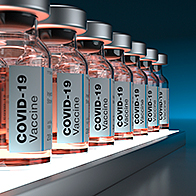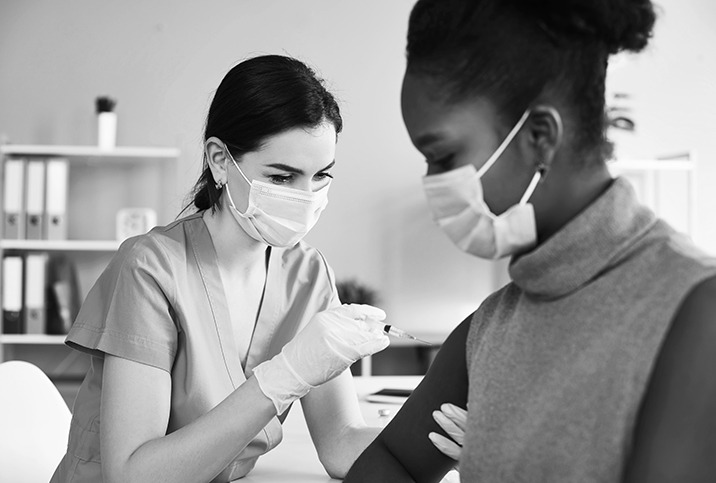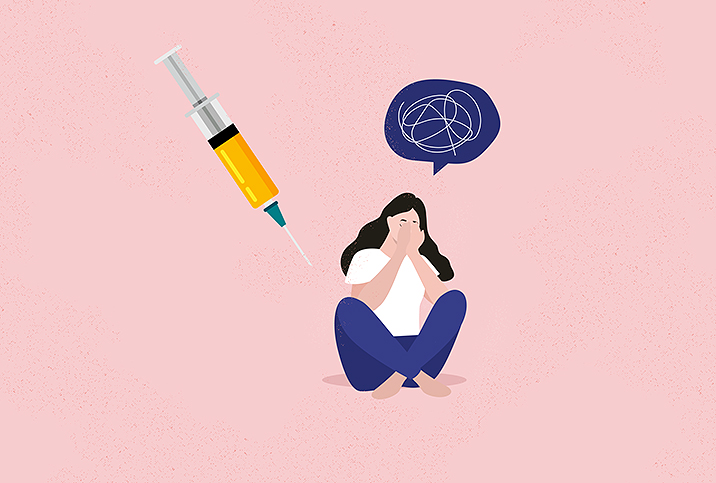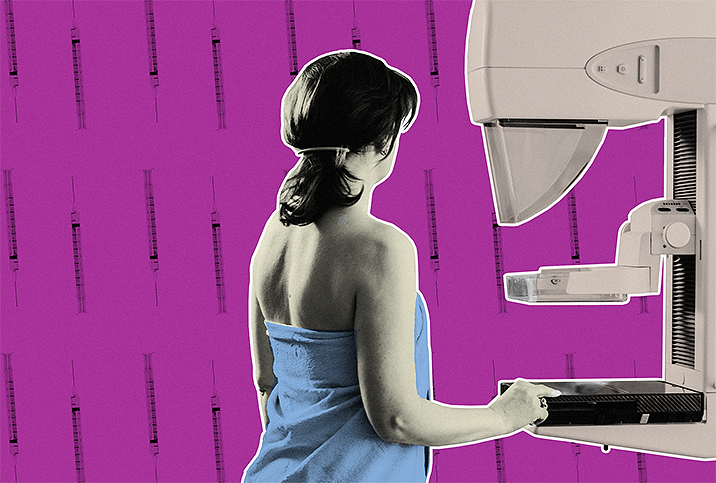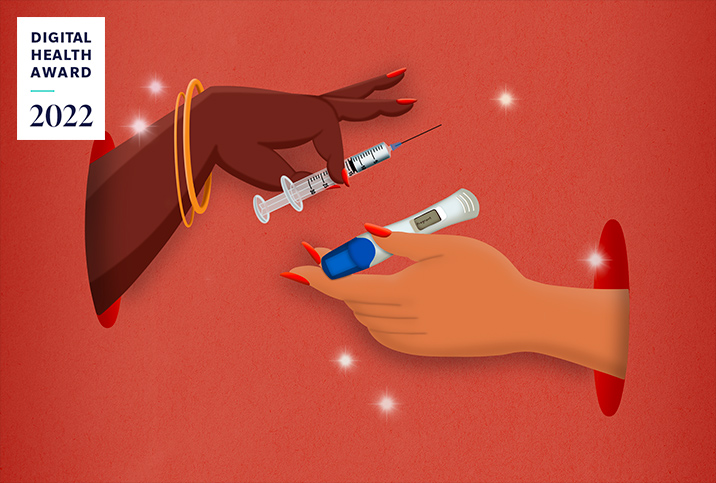We Have Questions: Pregnancy and the COVID-19 Vaccine
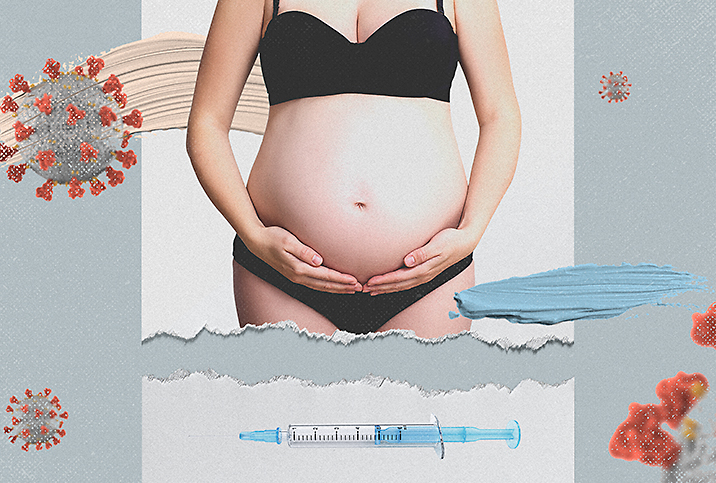
On August 11, 2021, the Centers for Disease Control and Prevention (CDC) released new data on the safety of the COVID-19 vaccine for pregnant people, announcing, "The benefits of receiving a COVID-19 vaccine outweigh any known or potential risks of vaccination during pregnancy."
A University of Washington Medicine study published in the Journal of the American Medical Association (JAMA) a week after the announcement supported the CDC's findings. The researchers surveyed more than 17,000 pregnant and lactating people who received the vaccine and found "the individuals did not experience symptoms any more severe than their non-pregnant counterparts."
"Taking the vaccine is a better choice than not taking the vaccine," confirmed Daniel Roshan, M.D., FACOG, FACS, who is board-certified in obstetrics and gynecology and is a renowned maternal-fetal medicine specialist in New York. "People can get very sick and die from COVID, so you have to look at the risk-to-benefit ratio, and getting the vaccine is the best choice."
Despite the evidence that all three vaccines currently available in the United States—Pfizer, Moderna and Johnson & Johnson (Janssen)—are safe to receive while pregnant, as of September 4, 2021, fewer than 25 percent of pregnant people ages 18 to 49 had received at least one dose. Pregnant Asian individuals have the highest vaccination rate at more than 35 percent, while Black women have the lowest, at just 13 percent.
In this Q&A, Roshan discusses the potential side effects of the vaccine versus contracting COVID while pregnant, what's driving vaccine hesitancy among pregnant Americans and the advice he offers patients who have concerns.
What are the potential side effects of the vaccine for mother and baby compared to the risks of a pregnant woman contracting COVID-19?
Among all the pregnant women who got vaccinated, when we ask them, "How were your side effects?" the majority don't complain, except for arm soreness. That's the majority of the complaints. Some had a low-grade temperature, malaise or tiredness. There haven't been any reports of problems for the fetus.
As compared to COVID, the side effects they usually complain about are malaise, fatigue, cold symptoms, fever and chills. The condition, obviously, is a lot more severe with COVID itself than with the vaccine. The vaccine has a mild reaction and the majority recover within 72 hours of the injection. The experience has been good so far with the vaccine. Not many people complain that they had side effects.
For women who do contract COVID, how many of those women are having a mild case of COVID versus a more extreme reaction to the virus?
Of those who contract COVID, the majority do very, very well and recover because they tend to be young and the young do better with COVID, especially with supportive care, and now also the monoclonal antibodies that are available to any pregnant woman who receives those within 72 hours, which can decrease the chance of complications tremendously. I think up to 2 percent to 5 percent, roughly, of those who contract COVID will have major side effects and end up in the hospital.
Last year [COVID] was new and more people were getting sick from it. This year, I think a lot of people had COVID before and now they're getting COVID variants and so they do much better. Of those who previously had COVID and are now contracting COVID variants, they have much fewer side effects, much fewer complications, and the recovery is faster. We're sort of at herd immunity, at least in New York, between those who are COVID positive and those who have had the vaccines.
What is known about the effect of COVID on unborn babies?
As of last year, most of the data showed that pregnant patients who contracted COVID did very well and there was no effect on the fetus. There were 1 or 2 case reports that said the mother was very sick and the fetus was affected, but to our knowledge, as long as the mother didn't end up really sick or on a respirator or in the hospital with a high fever, there has been no harm or effect to the fetus.
Obviously, those who end up really sick and on a respirator in the hospital, on IV lines, since they're not eating properly anymore, getting nutritious material, their babies sometimes are smaller and don't grow as fast. Having a high fever can have an effect on the growing fetus, especially if it's early on in the organ development. We know a high fever while pregnant can cause birth defects in the fetus.
So, our goal is to make sure pregnant women get vaccinated, either before they get pregnant, or if they get pregnant, they get the vaccine.
Given what we know about the safety and efficacy of the vaccine, what is driving vaccine hesitancy among pregnant women? What are they hearing that leads them to question the vaccine?
Unfortunately, there are many videos online, on YouTube and on social media, from very prominent doctors that cast a bad spell on the vaccine, and the fact that the two available vaccines that we use the most, Moderna and Pfizer, they're both mRNAs, which is a new technology. So, there are many videos where they talk about the possibility of autoimmune disease development, effects like heart damage, organ damage, menstrual irregularity and infertility.
None of this has been scientifically proven, but these doctors talk about it and it scares the patients from proceeding with getting the vaccine. So far the data hasn't shown any of those things that they talk about.
What we know... is that the people who got vaccinated do so much better if they do contract COVID, and the chance of being in the hospital and the ICU, or dying from COVID, is much, much less, so that's a big plus for us during this pandemic, to be able to get the pandemic under control and go on with our lives.
Pfizer recently received full FDA approval for its vaccine. Does that make it the gold standard for women, or are Moderna and Johnson & Johnson both safe, too?
We recommend Pfizer and Moderna, which are virtually the same. The CDC recommends Pfizer because it has been fully approved by the FDA, but I think Moderna would be just as good as well, and we don't doubt Moderna will be approved soon.
The Johnson & Johnson vaccine was only 66 percent effective in clinical trials and was designed for young people or those who only wanted to deal with getting one dose. Because of that, and because the trials showed a risk of blood clots, [at our clinic] we don't recommend that vaccine for pregnant people.
What do you tell pregnant women about the mixed messaging they might be hearing regarding the vaccine?
Taking the vaccine is a better choice than not taking the vaccine. People can get very sick and die from COVID, so you have to look at the risk-to-benefit ratio, and getting the vaccine is the best choice. It's true we still don't know the long-term effects of the vaccine, but so far for many, many patients who got the vaccine during pregnancy, there was no harm to them or their fetus. Ultimately, patients will make their own decision, but we recommend getting the vaccine.
What resources would you recommend pregnant people use to make their decision?
The best places for information are the CDC, The American College of Obstetricians and Gynecologists (ACOG) and the Society for Maternal-Fetal Medicine (SMFM). These organizations have the most up-to-date information regarding pregnancy and COVID.
What advice to stay safe do you offer to women whose hesitancy keeps them from receiving a vaccine while they are pregnant?
Wear a mask, don't trust anybody, if you see someone sick stay away from them as much as possible, decrease indoor social gatherings, don't travel, take your prenatal vitamins and take vitamin C, which seems to be helpful for recovering fast.
If you do get COVID, call a healthcare provider to receive the recombinant antibodies within 72 hours of contact, and take Tylenol Extra Strength if you're experiencing fever and chills.
Are there any last thoughts you'd like to share with our readers?
It's a good idea for all of us to read the research available and the data on the vaccines and COVID, and to make a wise decision, rather than just listening to some people on the internet. I think that at this time, based on the combination of advice available from ACOG, the CDC and SMFM, you should get the vaccine to prevent getting really sick from COVID.







